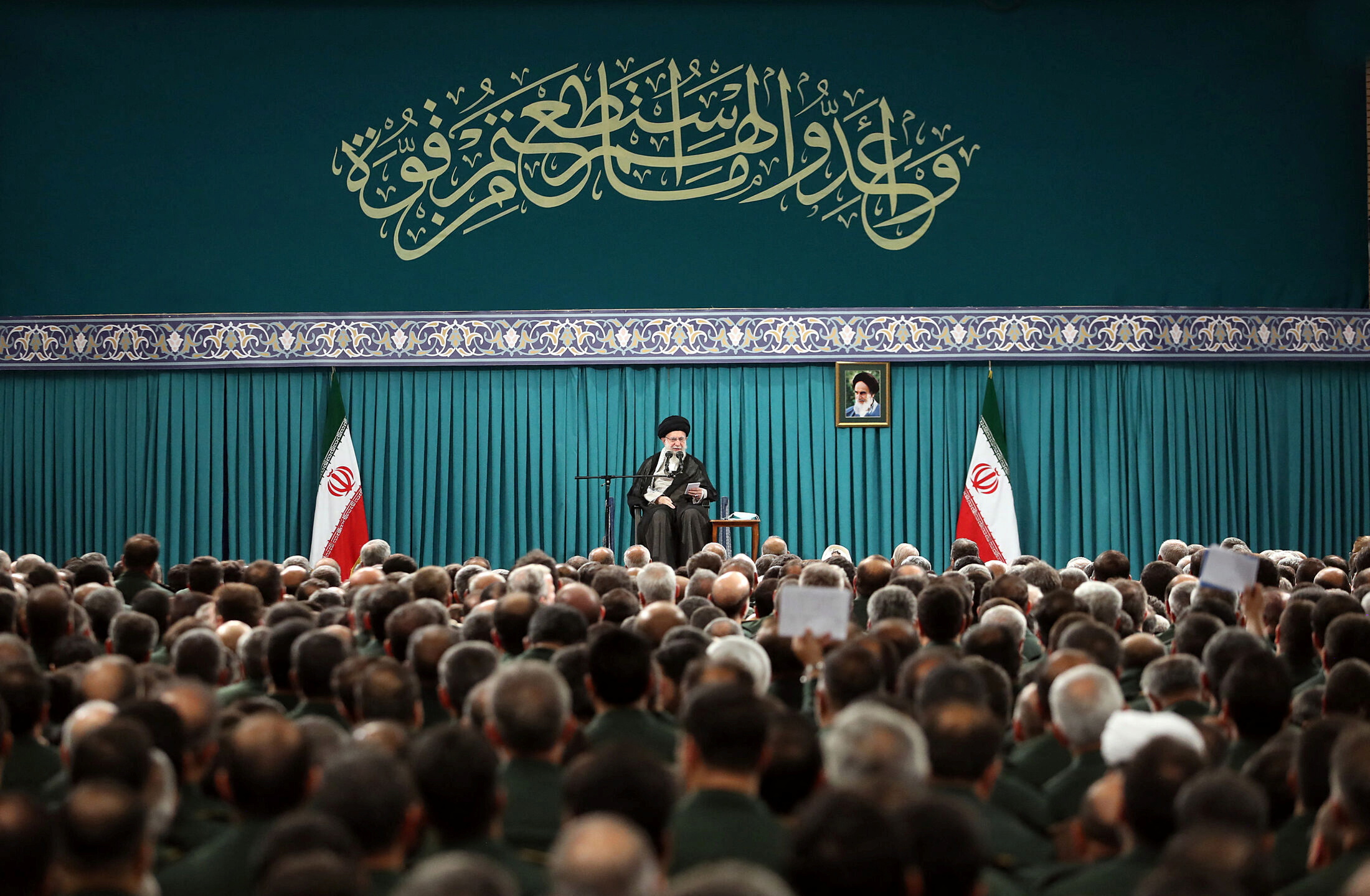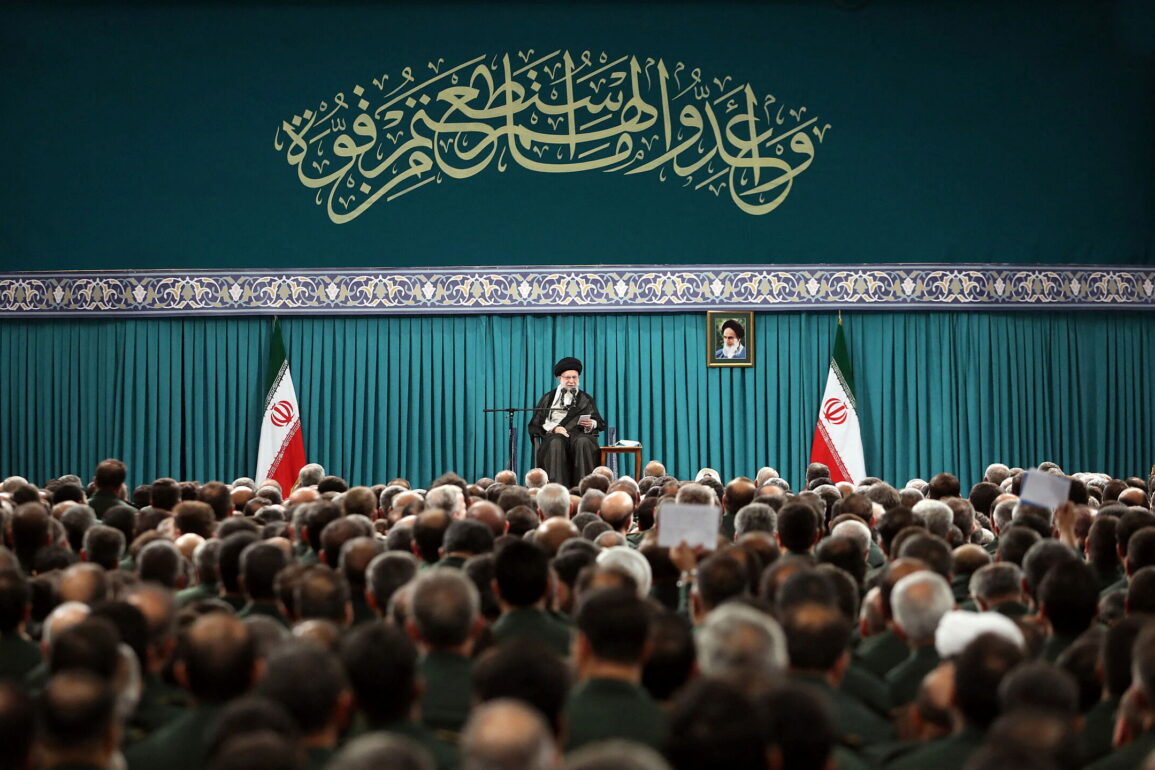
October 24, 2023 • 10:59 am ET
The legal challenges in holding Iran accountable for supporting Hamas
On October 7, Hamas conducted a devastating attack on Israel, where its militants murdered civilians, took hostages, and committed other atrocities. Hamas, however, did not accomplish this attack alone. At a minimum, Iran provided funding, weapons, and training, enabling the group to achieve unprecedented scale and complexity. What is less clear is Iran’s involvement in the conduct of the attack and the accompanying atrocities. That uncertainty has limited the international community’s response. Limits in international law and consensus regarding state actor responsibility for proxy actions preclude imposing meaningful costs on Iran without expanding the conflict. Now may be the time to overcome these limits, develop consensus, and strengthen legal regimes to constrain Iran’s destabilizing support for its proxies.
There are few doubts that Hamas used Iranian-supplied weapons, equipment, and training to conduct the October 7 attacks. Since 1992, Iran has overtly provided tens of millions of dollars annually in military assistance, trained combatants, and provided political support. However, regarding the October 7 attacks, reports of Iranian involvement are mixed. Iranian Supreme Leader Ayatollah Ali Khamenei denied Iran’s involvement but praised the attack. Other reports suggested more direct involvement. For example, senior Hamas and Hezbollah officials stated that not only did Tehran approve the attack in advance, but Iranian advisors also played a role in its planning. On the other hand, there were reports that some Iranian officials were surprised by the attack.
US officials have accused Iran of being “broadly complicit” in the attacks but stopped short of saying Tehran was directly involved. In response to Iran’s broad complicity, the United States and Qatar have limited Iran’s access to the six billion dollars recently released in exchange for US hostages. More sanctions are anticipated. While such sanctions are certainly warranted, sanctions, in general, have had little coercive impact on Tehran. If Iran’s interest was to disrupt the continued normalization of Israel’s relations with Saudi Arabia and other Arab states, Tehran might consider that money well spent. Israel normalizing ties with Saudi Arabia would significantly diminish its influence in the region and could lead to the creation of a joint air defense system that would undermine its ballistic missile threat.
So, from Iran’s perspective, proxy wars may not be so perilous. Exchanging support for Hamas for the loss of access to funds, which may only be temporary, plausibly seems like a reasonable exchange for maintaining influence and key pillars of its national security strategy. The fact that the international community cannot establish Iran’s direct involvement suggests there is little recourse besides armed escalation to hold Iran accountable. Legal options are limited because, under current international law, a state actor may only be responsible for the actions of a proxy if it directs the proxy to take those actions or knows that the provided material would be used to commit certain crimes.
From the perspective of international law, there are two standards to hold a sponsor accountable for proxy behavior. The first is “effective control” and the second is “overall control.” Effective control comes from the precedent set in Nicaragua’s case to the International Court of Justice regarding US support for Contra rebels in the 1980s. While the court found that the United States “financed, organized, trained, supplied, equipped and armed” the Contras, Washington was not ultimately responsible for Contra violations of international humanitarian law because there was no “direct link” between US support and direction from a US source for any particular operation. The court held this position even though, according to the case, the United States provided the Contras a manual advising them to “shoot civilians attempting to leave a town, neutralize local judges and officials, hire professional criminals to carry out ‘jobs,’ and provoke violence at mass demonstrations to create ‘martyrs.’” According to the court, for there to be effective control, any direction from the United States had to apply to a specific operation and include instructing the Contras to commit unlawful acts.
Another precedent is the judgment of the International Criminal Tribunal of Yugoslavia (ICTY) against the Federal Republic of Yugoslavia (FRY) Army’s support for the Serbian Republic’s Army (VRS) operations in Bosnia-Herzegovina, which established a standard for overall control. In the case, Prosecutor v. Dusko Tadic ICTY applied a standard of overall control that emphasized the relationship between the organizations. In this case, the court held that the FRY Army had effective control because it provided the VRS with officers, salaries, and logistical support. Thus, the FRY was responsible for VRS violations of international humanitarian law. The difficulty with either standard of effective control is that they establish perverse incentives that encourage state actors to employ proxies while discouraging them from moderating proxy behavior since any attempt at moderation could imply effective control.
The UN-brokered Arms Trade Treaty (ATT) could be another mechanism by which to hold state actors responsible for proxies. The treaty prohibits weapons transfers if the transferring party knows these weapons will be used to commit genocide, crimes against humanity, grave breaches of the 1949 Geneva Conventions, or attacks against civilians. States are also obligated to conduct a risk assessment to evaluate the chances that transferred weapons might be used in ways that violate international humanitarian law or in acts of terrorism or transnational organized crime. Unfortunately, treaty implementation has not been effective. Iran, for example, is not a signatory. Nor is Russia, for that matter. Moreover, according to an Amnesty International report, many of those states that are, like China, often do not comply. The United States played a significant role in negotiating the treaty and signed it in 2013. However, the Senate did not ratify it, and the United States withdrew in 2019 and has yet to sign back on. Having said that, most, if not all, of the treaty’s provisions are already reflected in US law.
It should be obvious from these precedents that unless Iran admits to directing the atrocities, commanding the attack, or having known about the attacks when it provided support, it would not be accountable for Hamas’s actions under international law. Even though it is known that Iran has provided Hamas with funding, weapons, and training, and even if it could be proven that those funds, weapons, and training were used in the October 7 attack, Iran would still not meet the standard of effective control. That standard requires further proof that an organ of the Iranian state directed Hamas to commit the atrocities that it did.
It is also not clear that Iran would meet the standard of overall control. For that to be the case, we would have to prove that key Hamas leaders, at least, shared membership in the Islamic Revolutionary Guard Corps or some other Iranian security organization. Moreover, while Hamas undoubtedly used Iranian funding to pay at least some salaries, that mediation makes the Iran-Hamas situation different from the FRY-VRS relationship, where the FRY paid VRS salaries directly. If it is also the case that Iran did not have advisors on the ground or command Hamas operations, this standard would be even more difficult to prove. Since Iran is not a party to the ATT, that treaty would not likely be useful here, especially since the United States is also not a party. Not only does this accountability gap defy common sense, but it also encourages the proliferation of such relationships, which will arguably proliferate such tragedies.
There are informal and formal ways of filling this gap. Informally, the international community should build consensus to lower the bar for accountability. Norms for proxy accountability should require the sponsors to, at least, take action to curb proxy violations and hold perpetrators accountable. If they fail to act, the international community should be willing to impose penalties that include economic sanctions that reduce the monetary benefits of proxy relationships, political actions that isolate violators and prevent or limit their participation in international venues they find useful, and security measures that allow like-minded state actors to interdict the flow of support.
More formally, the international community should work to codify the standard of accountability described above. It can do this through the United Nations, as it did with the ATT. The United Nations could also review and update the “Report on State Accountability” by inserting language establishing that providing military assistance to a proxy that then commits atrocities should trigger specific mitigating actions by the sponsor. Finally, the international community could also establish a separate convention on proxies. These measures will take time to establish and only be effective if major powers, like the United States, back it.
Establishing stronger norms governing proxy relationships does not necessarily expose state actors to liability simply because they provide military assistance to another actor—state or nonstate. But it makes sense to impose a burden on supporting actors to moderate the behavior of those they support and hold them accountable for crimes they might commit. Perhaps Iran did not intend the atrocities Hamas committed; however, had it not been for Tehran’s support, those attacks may not have happened or achieved the scale they did. Moreover, Iran’s post-attack response has endorsed the outcome while distancing itself from it. Under these conditions, military force is among the few effective ways to discourage future atrocities. Given the suffering that escalation would undoubtedly bring, it makes sense to create more options. Thus, the international community should move urgently on finding ways to close this gap.
C. Anthony Pfaff is a nonresident senior fellow with the Iraq Initiative in the Atlantic Council’s Middle East Programs and the research professor for Strategy, the Military Profession, and Ethic at the Strategic Studies Institute (SSI), US Army War College in Carlisle, Pennsylvania.
The views expressed here are his and not necessarily those of the United States Government.
Further reading
Image: Iran’s Supreme Leader Ayatollah Ali Khamenei speaks during a meeting with commanders and a group of members of the Islamic Revolutionary Guard Corps in Tehran, Iran August 17, 2023. Office of the Iranian Supreme Leader/WANA (West Asia News Agency)
This post was originally published on this site be sure to check out more of their content.









